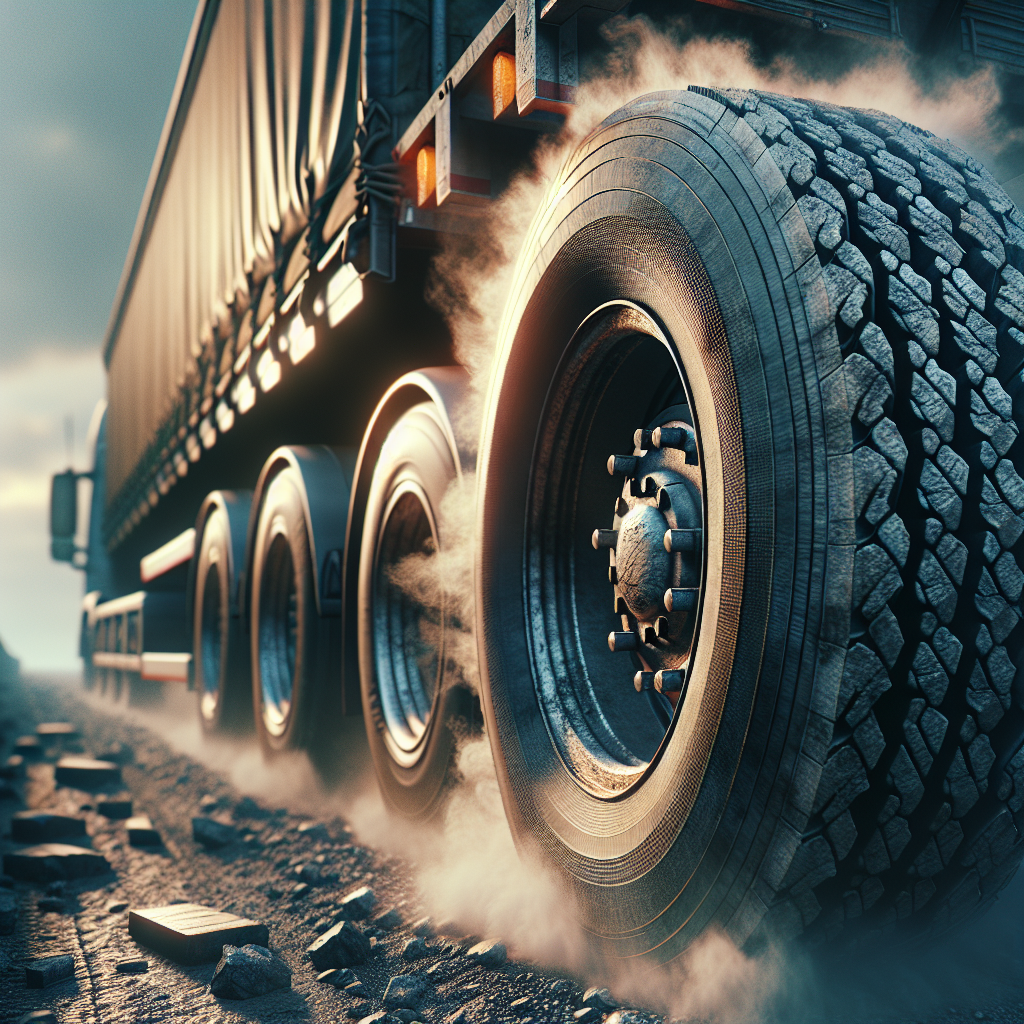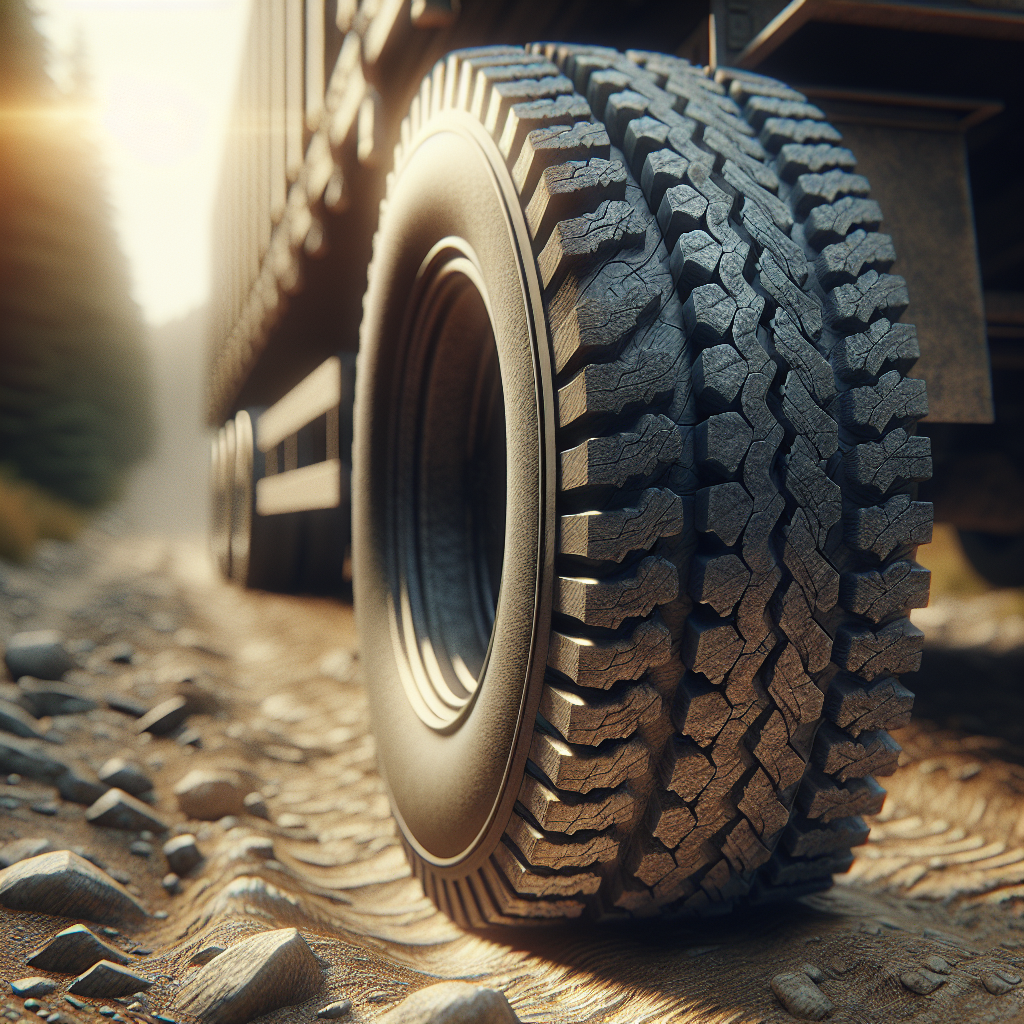When towing a trailer, it’s crucial to understand the factors that contribute to increased tire heat. This **heat buildup** can lead to serious issues, including blowouts and accidents. The primary reasons for overheating trailer tires include:
- Under-inflation: Insufficient air pressure causes tires to flex more, generating excess heat.
- Overloading: Exceeding the trailer's weight capacity places additional stress on the tires, leading to overheating.
- Friction: Poor wheel alignment or dragging brakes can create friction that raises tire temperatures.
- High Speeds: Driving at excessive speeds increases the risk of tire heat accumulation.
- Road Conditions: Rough, uneven surfaces can contribute to tire wear and heat generation.
To prevent overheating, regularly check your tire pressure and ensure you are not exceeding weight limits. Monitoring your trailer's performance with a system like TrailerWatchdog can provide real-time data on tire conditions and alert you to potential issues before they escalate.
Tow with peace of mind, knowing that TrailerWatchdog is standing guard.
Impact of Tire Pressure on Trailer Temperature

The relationship between tire pressure and trailer temperature is crucial for safe towing. Proper tire pressure ensures that your tires perform optimally, while under or over-inflation can lead to increased heat. Here’s how tire pressure impacts trailer temperature:
- Under-inflation: When tires are under-inflated, they tend to flex more during driving. This excessive flexing generates heat, which can lead to premature tire wear and even blowouts. It's essential to regularly check and maintain the recommended tire pressure.
- Over-inflation: On the flip side, over-inflated tires may provide less traction and uneven wear. They can also be more susceptible to punctures and damage, which can raise temperatures as well.
- Temperature Variability: Tire pressure can change with temperature fluctuations. As tires heat up during use, the air inside expands, causing an increase in pressure. Monitoring these changes is vital to ensure that tires remain within safe operating limits.
- Performance and Handling: Proper tire pressure not only affects temperature but also influences handling and braking performance. Well-inflated tires provide better grip, which can minimize excessive heat generation due to slippage.
Incorporating regular tire pressure checks into your maintenance routine can significantly enhance the safety and longevity of your trailer tires. Understanding this critical relationship between tire pressure and temperature can help prevent overheating and ensure a smoother towing experience.
Role of Load Capacity in Tire Heat Generation

The load capacity of your trailer plays a significant role in tire heat generation. Each tire is designed to carry a specific maximum load, and exceeding this limit can lead to serious issues. Understanding how load capacity affects tire performance is essential for safe towing:
- Exceeding Load Limits: When a trailer is loaded beyond its specified weight, the tires experience increased stress and flexing. This additional strain generates excessive heat, which can compromise the integrity of the tires and lead to blowouts or other failures.
- Distribution of Weight: Not only is it important to stay within the overall weight limit, but how the weight is distributed also matters. Uneven weight distribution can cause some tires to bear more load than others, leading to localized overheating and accelerated wear.
- Heat Dissipation: Tires are designed to dissipate heat during operation. However, when overloaded, their ability to manage heat diminishes. This can lead to a dangerous cycle where increasing temperatures further degrade the tire's performance.
- Effects on Handling: A trailer loaded improperly can affect its handling and stability. Poor handling may lead to tire slippage, which can create additional friction and heat, further exacerbating the problem.
To maintain optimal tire performance and safety, always adhere to the manufacturer’s load capacity recommendations. Regularly inspecting your trailer's load and ensuring proper weight distribution can significantly reduce the risk of tire overheating and extend tire life.
Effects of Driving Conditions on Trailer Tire Heat
The driving conditions encountered while towing can significantly influence the heat generation in trailer tires. Various environmental and road factors can contribute to increased tire temperatures, impacting both performance and safety:
- Weather Conditions: Extreme temperatures can affect tire heat levels. Hot weather naturally raises tire temperatures, while cold weather can lead to reduced tire pressure, which can cause tires to flex more than usual, generating heat as a result.
- Road Surface: The type of road surface plays a crucial role in tire heat generation. Rough, uneven, or poorly maintained roads can create additional friction between the tire and the surface, leading to increased heat buildup. Conversely, smooth roads can minimize this friction, allowing for better heat dissipation.
- Speed: Higher speeds often correlate with increased tire temperatures. As a trailer moves faster, the tires rotate at greater speeds, generating more heat due to the friction and flexing of the tire materials. Maintaining a moderate speed can help reduce excessive heat.
- Braking and Acceleration: Frequent braking and rapid acceleration can also contribute to tire heat. When brakes are applied, the tires experience increased friction, leading to elevated temperatures. Likewise, aggressive acceleration can cause tire slippage, adding to heat generation.
Awareness of these driving conditions is essential for maintaining proper tire temperature. By adjusting driving habits based on environmental and road conditions, trailer owners can help ensure the longevity and safety of their tires.
Preventing Overheating: Essential Maintenance Tips

Preventing overheating in trailer tires requires a proactive maintenance approach. Regularly monitoring and maintaining tire health not only extends the lifespan of your tires but also enhances safety during towing. Here are some essential maintenance tips to keep trailer tires cool and functioning optimally:
- Regular Inspections: Frequently check your trailer tires for signs of wear and damage. Look for cracks, bulges, or foreign objects embedded in the tread. Addressing these issues promptly can prevent overheating caused by compromised tire integrity.
- Proper Inflation: Maintaining the correct tire pressure is crucial. Under-inflated tires generate more heat due to increased flexing, while over-inflated tires can lead to poor traction and uneven wear. Refer to the manufacturer's specifications for the ideal tire pressure and check it regularly, especially before long trips.
- Rotate Tires: Just like vehicle tires, trailer tires benefit from regular rotation. This practice ensures even wear across all tires, preventing hotspots that can lead to overheating. Follow the recommended rotation schedule based on your trailer's usage and tire brand guidelines.
- Check Wheel Bearings: Overheating can also stem from improperly lubricated or faulty wheel bearings. Regularly inspect and lubricate wheel bearings according to the manufacturer's recommendations to ensure smooth operation and reduced friction.
- Monitor Load Capacity: Ensure that your trailer is not overloaded, as excessive weight can lead to increased tire stress and heat generation. Familiarize yourself with your trailer's load capacity and adhere to it to prevent unnecessary strain on the tires.
By implementing these maintenance tips, you can significantly reduce the risk of trailer tire overheating, ensuring a safer and more enjoyable towing experience.
When to Seek Professional Help for Trailer Tires

While regular maintenance can go a long way in preventing issues with trailer tires, there are times when seeking professional help becomes essential. Recognizing the signs that indicate the need for expert intervention is crucial for maintaining safety and performance. Here are some situations when you should consider consulting a professional:
- Severe Damage: If you notice any significant damage to your tires, such as deep cuts, large punctures, or bulges, it's time to consult a tire specialist. These issues often require professional repair or replacement to ensure safety on the road.
- Frequent Overheating: If your trailer tires consistently overheat despite following maintenance protocols, it could indicate underlying problems such as misalignment, improper load distribution, or bearing issues. A professional can diagnose and resolve these complex issues effectively.
- Vibration or Noise: Unusual vibrations or noises while towing can signal improper tire balance or alignment. These conditions not only affect tire longevity but can also compromise safety. A tire expert can assess and correct these issues to ensure a smoother towing experience.
- Wear Patterns: If you observe unusual wear patterns on your tires, such as excessive wear on one side, it might indicate alignment or suspension problems. Consulting a professional can help identify the root cause and prevent further tire damage.
- Regular Maintenance Checks: Even if everything appears fine, consider scheduling regular professional inspections. Experts can spot potential problems that may not be visible to the untrained eye, providing peace of mind for your towing adventures.
When in doubt about your trailer tires, don’t hesitate to seek the expertise of professionals. Tow with peace of mind, knowing that trailerwatchdog is standing guard.








